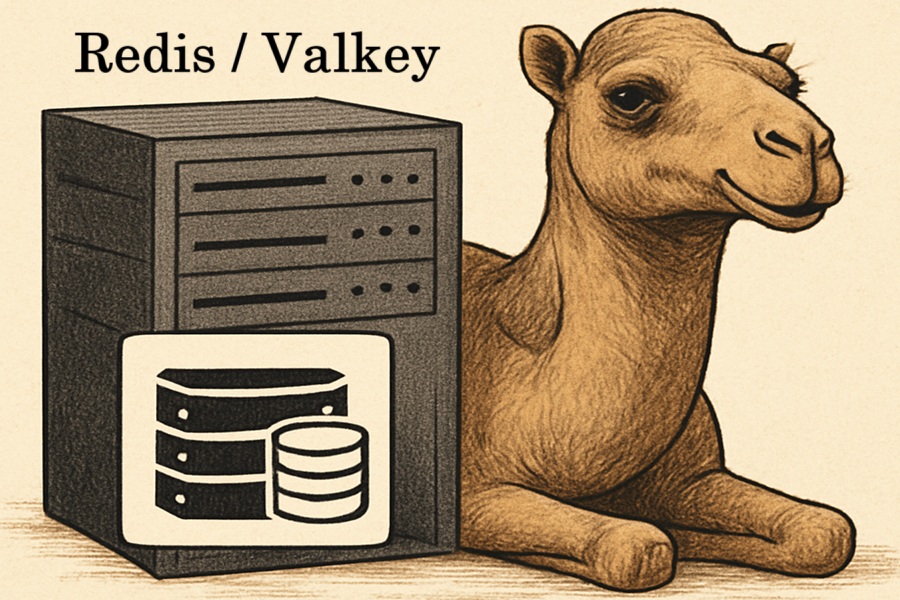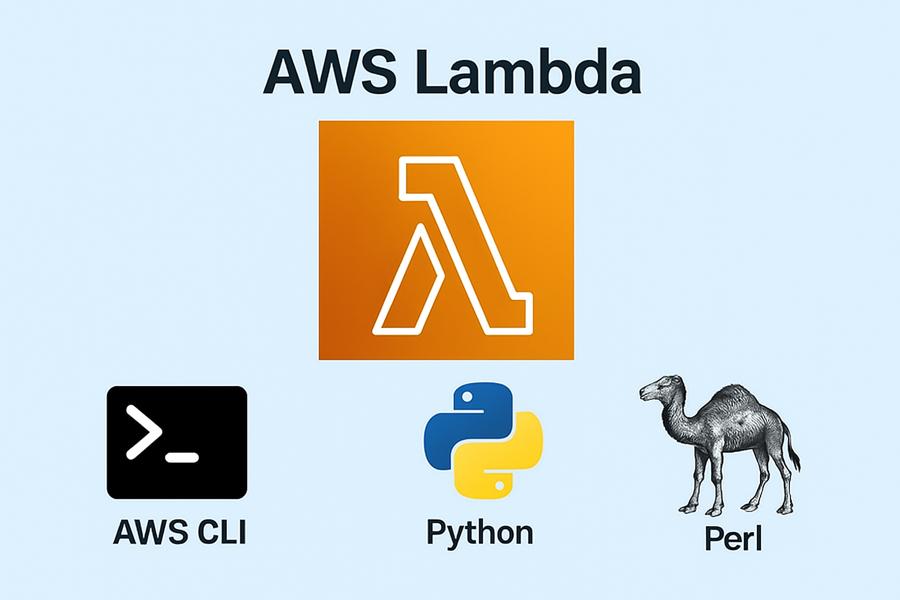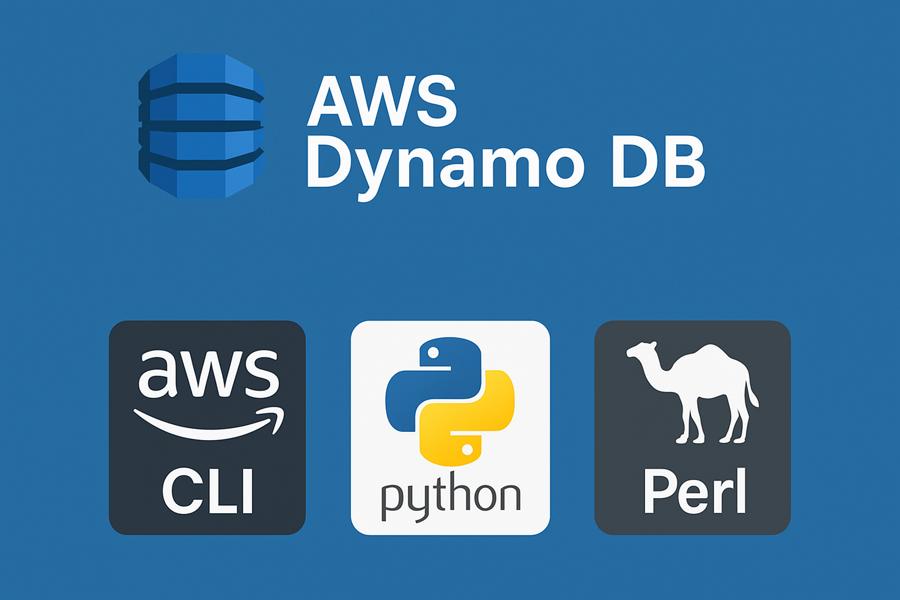Caching in Perl

Caching with Redis/Valkey using Perl.
Please check out the link for more information:
https://theweeklychallenge.org/blog/caching-in-perl

Caching with Redis/Valkey using Perl.
Please check out the link for more information:
https://theweeklychallenge.org/blog/caching-in-perl
Hi all,
Hope you are all having a great summer!
Work continues on Dancer2 2.0.0, albeit a bit slower than planned. It's summer; trips happen, things come up, etc. etc. Progress is still happening though - we took in a few extra PRs (with one more incoming still), and a few more approvals for some items are needed.
I'll keep dropping updates as the release approaches. Hoping you are all as excited for this as I am :-)
Keep on Dancing! Jason
XS has a reputation for being hard to access and I think it's a shame because I don't think it has to be: it's mostly that the Perl API is hard. What if you offload as much logic as possible to perl, and use XS only to expose functions to perl? That would be much easier for a casual XS writer who doesn't know anything about Perl's internals.
So, in this example I will write a simple XS module for a real-life API, in this case POSIX real-time semaphores. This allows you to synchronize data between different processes or threads. At its core the API is this:
sem_t* sem_open(const char* path, int open_flags, mode_t mode, unsigned int value);
int sem_close(sem_t *sem);
int sem_unlink(const char* path);
int sem_wait(sem_t *sem);
int sem_trywait(sem_t *sem);
int sem_post(sem_t *sem);
All three of us attended.
buildtoc) and that what we think of as the release process is really a procedure for performing a state transition on the repository, where the repository constitutes the input to makerel, and the state transition aims to trigger the correct change in the output of makerel.
Comparative analysis of Storable and Sereal using Perl.
Please check out the link for more information:
https://theweeklychallenge.org/blog/serialisation-in-perl
We all knew Matt Trout differently.
To some, he was tough. Uncompromising. Intimidating, even. He was half-man, half-thermite, a brilliant intellect with a particular way of loving something so fiercely that if you didn’t match that intensity, he might burn straight through, leaving you feeling crispy at the edges. Others have spoken about his “Get good or get out” attitude and I think it’s important to acknowledge that whilst he forged a lot of people into better programmers, it also drove others away.
But my version of Matt was the best mentor I’ve ever had. He was never condescending, in fact he seemed to have an infinite amount of belief in me and patience with me that I’m not sure what I did to deserve. When I was drowning, he’d pull me out of the water at the last minute, give me a hint, and throw me back into the deep end. I learned to swim because he never doubted that I could.
At the latest German Perl Workshop I held a 40 min beginner- to mid level talk about Raku (slides). It was about the habits of Perl programmers that turn contra productive with this new language. This article is a summarizing recapitulation of the pitfalls minus the intro about the history of Raku, the zef ecosystem and some general knowledge - for all those who could not attend or don't speak German.
You know how many languages have a "pipe" operator, either ready or in the making? Like PHP, here, for example: https://laravel-news.com/the-pipe-operator-is-coming-to-php-85
Well, Perl v5.42 (almost) has that too! Check these examples:
$ perl -E 'say "Alexander"->&CORE::substr(1, 3);'
lex
$ perl -E 'say ","->&CORE::join(qw/ 10 20 30 /);'
10,20,30
I believe this would work with any user defined or imported subroutine too, instead of the core functions (there you get to omit the "CORE::").

Quick introduction to AWS Lambda using CLI, Python and Perl.
Please check out the link for more information:
https://theweeklychallenge.org/blog/aws-lambda
I don't know everyone who is involved in maintaining MetaCPAN and I don't know all the details of the performance related issues that have been an ongoing challenge (I believe they have been related to relentless bots?).
In any case, this last week MetaCPAN seems to have been running flawlessly!
So rather than burying a thanks note in a github issue, I wanted to put a public thanks here to all the volunteers and sponsors that keep MetaCPAN (and CPAN) running.
The CFP is closed, but in order to attend the PCC virtually, please follow this link, https://www.meetup.com/austin-perl-mongers/events/305855419/.
We are asking for a $30 donation at sign-up, but you may email science@perlcommunity.org to inquire about a discounted or free code we have for non-profits and those in between jobs.
To sign up for our low-volume email list to get information about upcoming events, click here.
All three of us attended.
I had the pleasure of attending The Perl & Raku Conference (TPRC) 2025 in Greenville, SC as a volunteer. As always, opinions are my own.
The Conference
The conference went quite well. Unfortunately, a major weather event disrupted flights across the US, particularly around Atlanta, causing travel issues for some attendees and speakers. This led to a few talk cancellations.
We adopted it by consolidating the two talk tracks into one. There was still a diverse range of topics, and judging by the audience reactions, some of the talks were very well received.
The conference was attended by 40-50 people.
The Venue
The event was hosted at a Holiday Inn Express in Greenville, which turned out to be an excellent choice. The hotel was clean, recently renovated (following flood repairs last year), and very reasonably priced: $139 + tax per night for a suite. The staff were quite friendly and accommodating. It also proved to be a great low-cost venue for hosting a conference - more on that below.
I had created the library in C as part of a bigger project to create a multithreaded and hardware (GPU, and soon TPU) accelerated library to manipulate fingerprints for text. At some point, I figured one can have fun vibe coding the interface to Perl. The first post in the series just dropped ; it provides the background, rationale, the prompt and the first output by Claude 3.7. Subsequent posts will critique the solution and document subsequent interactions with the chatbot.
Part 2 will be about the alienfile (a task that botched by the LLM). Suggestions for subsequent prompts welcome ; as I said this is a project whose C backend (except the TPU part) is nearly complete, so I am just having fun with the Perl part.
Paper and talk submissions will be accepted until July 01, 2025 18:59 CDT
In particular I'd like to invite anyone who regrets not submitting a talk to the TPRC or who has gotten bit by the speaking bug. You are welcome to give your talk remotely.

Lexical Method in the latest release Perl v5.42 RC1. For more details, follow the link: https://theweeklychallenge.org/blog/lexical-method-v542
Graham couldn’t make it, so only Aristotle and Philippe this week.
Remember! Click Continue Reading to see all the text.
I am selling my villa unit and downsizing, probably in a month or so.
There may be a period when I am off-line.
In Australia villa unit means (usually) a stand-alone building in a small block of units.
I have 2-bedroom unit and am moving into a retirement (Yikes!) village to a 1-bedroom unit.
The are various reasons but one is this month I turned 75, much to my amazement and horror.
I still live independently, drive, have 2 miniature dogs, manage my own medicine, etc. So - all good ATM.
And yes, I am still programming. I more-or-less monthly release https://savage.net.au/misc/Perl.Wiki.html,
my curated compendium of Perl module, and I am slowly automating the creation of this wiki.
The next step will be to output the wiki as a jsTree (https://www.jstree.com/),
but moving - as you might know - consumes a lot of time.....
The Dancer Core Team is excitedly preparing a major release of Dancer2, 2.0.0. In advance of this, I'd like to give you all a preview of what to expect:
A handful of bug fixes
Customizable scrubber/censor engine (when dumping errors, etc. - a long requested feature)
Remove Template::Tiny fork from core (Template::Tiny support remains, but ether graciously merged our customizations into Template::Tiny)
Remove Dancer2::Template::Simple from the core of Dancer2
New documentation, courtesy of a TPRF grant
Removal of deprecated code (according to our deprecation policy)
Official support for Perl 5.22 and newer
The following features are possible, but not likely for 2.0.0 (but maybe soon thereafter):
Bring your own config engine (TOML, JSON, etc.)
Using Throwable to produce errors
I'm estimating a release in the next 2-4 weeks. There are still a few bikesheds to paint, cats to herd, and yaks to shave.
If you have questions or feedback, we'd love to hear from you! Until then, keep Dancing, then Dance a little happier! :)
Jason/CromeDome

Quick introduction to AWS DynamoDB using CLI, Python and Perl.
Please check out the link for more information:
https://theweeklychallenge.org/blog/aws-dynamodb
blogs.perl.org is a common blogging platform for the Perl community. Written in Perl with a graphic design donated by Six Apart, Ltd.